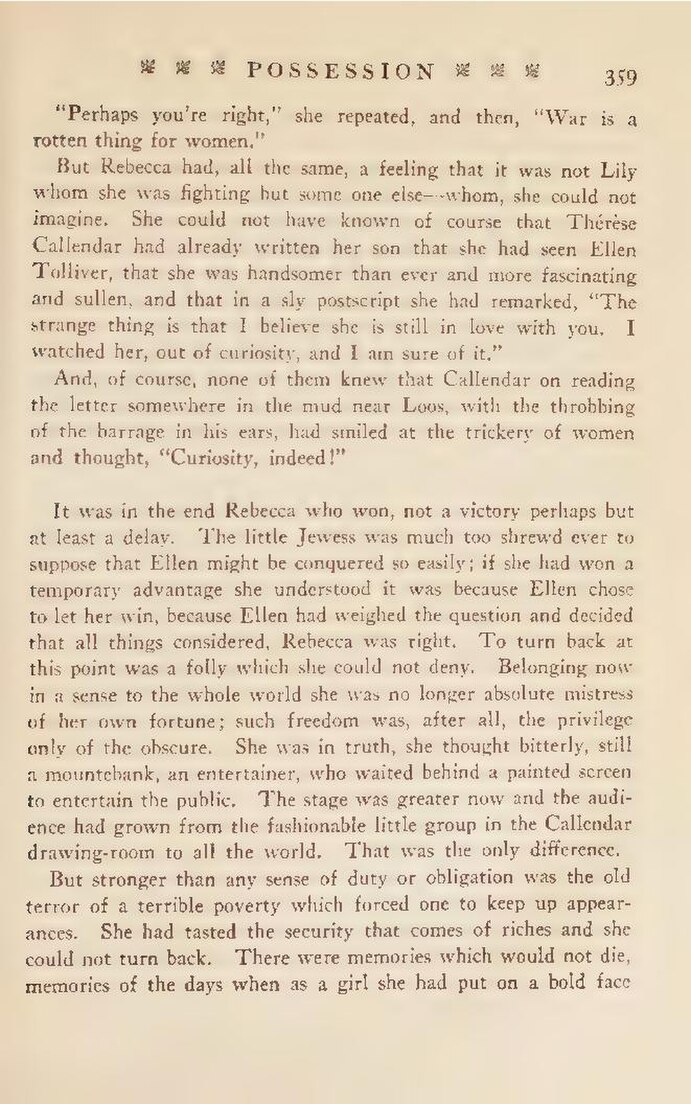"Perhaps you're right," she repeated, and then, "War is a rotten thing for women."
But Rebecca had, all the same, a feeling that it was not Lily whom she was fighting but some one else—whom, she could not imagine. She could not have known of course that Thérèse Callendar had already written her son that she had seen Ellen Tolliver, that she was handsomer than ever and more fascinating and sullen, and that in a sly postscript she had remarked, "The strange thing is that I believe she is still in love with you. I watched her, out of curiosity, and I am sure of it."
And, of course, none of them knew that Callendar on reading the letter somewhere in the mud near Loos, with the throbbing of the barrage in his ears, had smiled at the trickery of women and thought, "Curiosity, indeed!"
It was in the end Rebecca who won, not a victory perhaps but at least a delay. The little Jewess was much too shrewd ever to suppose that Ellen might be conquered so easily; if she had won a temporary advantage she understood it was because Ellen chose to let her win, because Ellen had weighed the question and decided that all things considered, Rebecca was right. To turn back at this point was a folly which she could not deny. Belonging now in a sense to the whole world she was no longer absolute mistress of her own fortune; such freedom was, after all, the privilege only of the obscure. She was in truth, she thought bitterly, still a mountebank, an entertainer, who waited behind a painted screen to entertain the public. The stage was greater now and the audience had grown from the fashionable little group in the Callendar drawing-room to all the world. That was the only difference.
But stronger than any sense of duty or obligation was the old terror of a terrible poverty which forced one to keep up appearances. She had tasted the security that comes of riches and she could not turn back. There were memories which would not die, memories of the days when as a girl she had put on a bold face
